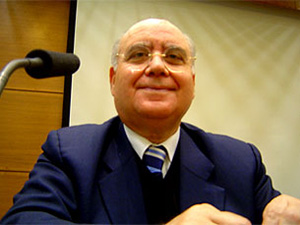 Friday, 25 October, 5.00, p.m.
Friday, 25 October, 5.00, p.m.
University of Madeira - Rectory Auditorium (Funchal)
Cón. António Ferreira dos Santos: Lecture
The organ in Church today
Wolfgang Amadeus Mozart (1756-1791) wrote in a letter to his father in 1777, “the pipe organ is, to my eyes and ears, the King of Instruments”. The genius of Salzburg indeed came to know the pipe organ in a flourishing state of maturity.
From the 15th century, a vast number of composers or organ music from the geographical areas that are now part of Austria, Germany, France, Italy, Holland, Spain, Portugal and England, composed, in the musical styles then familiar, works whose themes, for the most part, had to do with the liturgy (the Mass, Office and religious melodies of the people, used in their devotions), with surprising creativity and an impressive reverence for the sacred.
It is known that Johann Sebastian Bach (1685-1750) studied in depth the organ music of composers from the North of Europe, Italy and France: Sweelinck (1562-1621), Frescobaldi (1583-1643), Froberger (1616-1667), Buxtehude (1637-1707) and Couperin (1668-1733), to mention only some of the best-known names.
On a perfect synthesis, built on the best of what had been composed for organ before him, the incomparable genius of Leipzig constructed a monumental and insuperable oeuvre for organ that continues to be the immovable standard today, both for organists and organ builders. This is why Bach is justly called “the father of organ music”. It was he who consecrated the pipe organ.
The Roman Catholic and Lutheran Churches looked upon the pipe organ as the cosmic instrument par excellence, which “speaks to heaven and earth”, a kind of living interpretation of Psalm 150.
Many are the documents of the Catholic Church, through the centuries, that choose the pipe organ as the instrument proper for liturgy, together with the human voice, legislating for the careful training (technically and liturgically) of organists and defending the giving of organ concerts, above all in cathedrals and large churches.
It is obvious that, in order to realize such requirements, so often repeated, it is necessary to work quickly towards a healthy, intelligent and fruitful articulation of efforts between the Church and the competent authorities of the State. Portugal has an extraordinary organ heritage whose continued study, restoration and use is urgent. The Church and the State should formally join hands, I believe. Much has been done. But... there is much more to do.
Cón. António Ferreira dos Santos
Participants
 António Ferreira dos Santos
António Ferreira dos Santos
Portuguese canon, conductor and composer, António Ferreira dos Santos was born in 26 June 1936, in Guidões, near Santo Tirso, in the district of Oporto.
He finished his theological studies at the Greater Seminary in Oporto (1959) and, displaying a natural taste for and refined sensibility towards music, fed by the family atmosphere, he studies at the Conservatoire in Oporto. In 1962, with a Grant from the Gulbenkian Foundation, he left to study in Salzburg and Munich, with the intention of developing his musical abilities. He studied at the Higher School of Music in Munich where, in 1970, he graduated in sacred music, organ, choir conducting and composition. In the same year, he returned to Portugal and initiated, together with Fr Agostinho Pedroso and Fr Manuel Amorim, a number of activities in order to incentivize musical life in Oporto, and to renew liturgy and liturgical music in the Diocese of Oporto. Thus, he founded a number of choirs, including the Choir of the Cathedral of Oporto (1971). He also founded various teaching institutions, such as the Diocesan School of Sacred Music and Liturgy and the School of Arts of the Universidade Católica do Porto (1996), of which he was director (1996-2001). Since 1988, he has organized anual concert series, especially at Christmas and Easter, at the Church of Nossa Senhora da Lapa in Oporto, of which he has been rector since 1982. He has also been active as a musical pedagogue, not only working with lay people, educating them in the musical tradition of the Catholic Church, but also working in universities and other establishments of musical education. He has received various decorations in Portugal and abroad, such as the Grand Cross of Cultural Merit in Germany, the title of Comendador da Ordem do Infante D. Henrique, the Gold Medal of the City of Oporto and the Medal of Cultural Merit of the City of Santo Tirso.